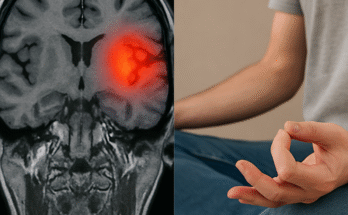How to Eliminate Excess Body Salts: A Comprehensive and Enjoyable Guide
Dealing with excess salts in the body depends on the type of salt and the related health conditions. Each imbalance requires a tailored approach. Below, we break down the different types of salt buildup, their effects, and effective solutions to restore balance—all explained in a way that’s both informative and easy to digest.
1. Tackling High Sodium Levels
Sodium primarily resides in the blood and lymphatic fluids. Hypernatremia (excess sodium) occurs when the body loses too much water or gains too much sodium. Normally, specialized brain receptors regulate thirst and urine concentration to maintain sodium balance. But in certain medical conditions, intervention becomes necessary.
- Gradual Sodium Buildup: If sodium rises slowly over 48+ hours, simply drinking more fluids can help.
- Sudden Spike: Rapid sodium surges may require intravenous (IV) fluids to rehydrate the body safely.
2. Managing Excess Potassium
Potassium is crucial for muscle function—especially the heart! Abnormal levels can disrupt the heart’s electrical rhythm, visible on an ECG. Severe cases may even cause heart failure or skeletal muscle paralysis.
Treatment Options:
- Medication Adjustments: Stop any drugs causing potassium retention.
- Glucose & Insulin IV: This combo helps shift potassium from blood into cells.
- Calcium IV: Protects the heart and muscles during acute spikes.
- Diuretics: Increase potassium excretion via urine.
- Diet Tweaks: Reduce high-potassium foods like bananas, potatoes, and certain meats.
3. Balancing High Calcium
Hypercalcemia (excess calcium) weakens bones, raises kidney stone risk, and is often linked to overactive parathyroid glands or cancer.
Solutions:
- IV Fluids: For mild, asymptomatic cases.
- Calcitonin: Regulates calcium but may cause nausea.
- Calcimimetics: Control calcium in parathyroid disorders.
- Bisphosphonates: IV osteoporosis drugs for rapid calcium reduction, especially in cancer-related cases.
4. Addressing Excess Phosphorus
Kidney disease is a common culprit behind high phosphorus levels. While phosphorus is vital for bones and energy, too much can be harmful.
Fix It With:
- Low-Phosphorus Diet: Cut back on phosphorus-rich foods.
- Phosphate Binders: Calcium-based medications taken with meals to block phosphorus absorption.
Why Salt Balance Matters
Salts like sodium, potassium, calcium, and chloride are essential for healthy bones, muscles, heart, and brain function. They also play key roles in enzyme and hormone production. However, balance is everything—too little or too much can disrupt the body. Always aim for moderation and consult a healthcare provider before making drastic changes.
By understanding these nuances, you’re better equipped to maintain harmony in your body’s delicate salt ecosystem. Stay informed, stay balanced! 🌟
Enjoyed this guide? Share it with someone who might benefit! 😊





